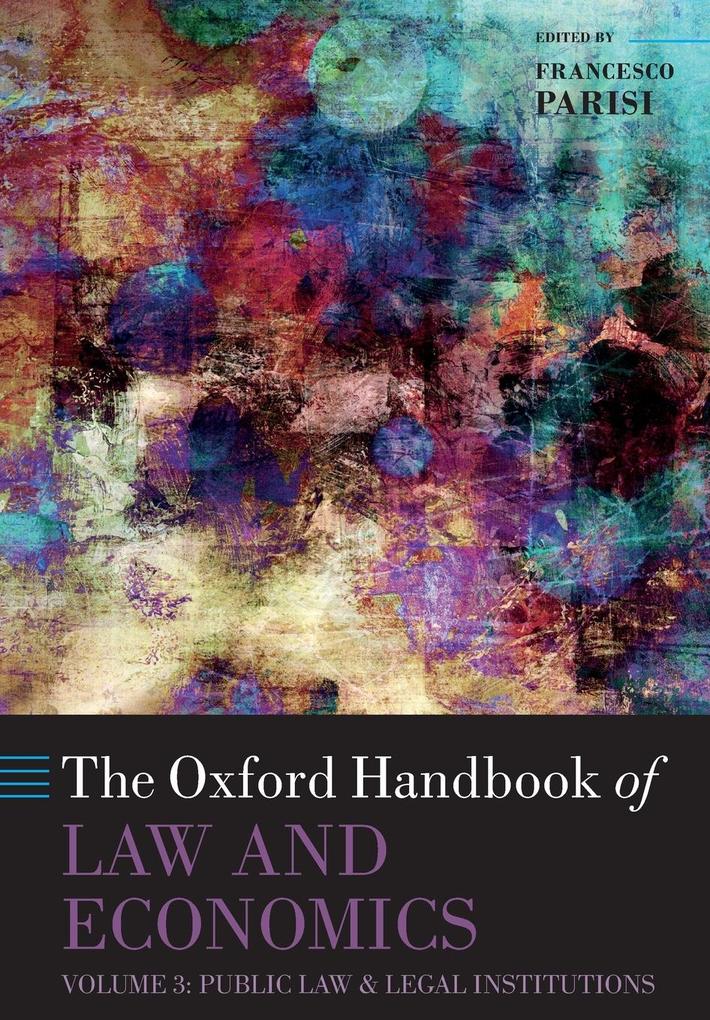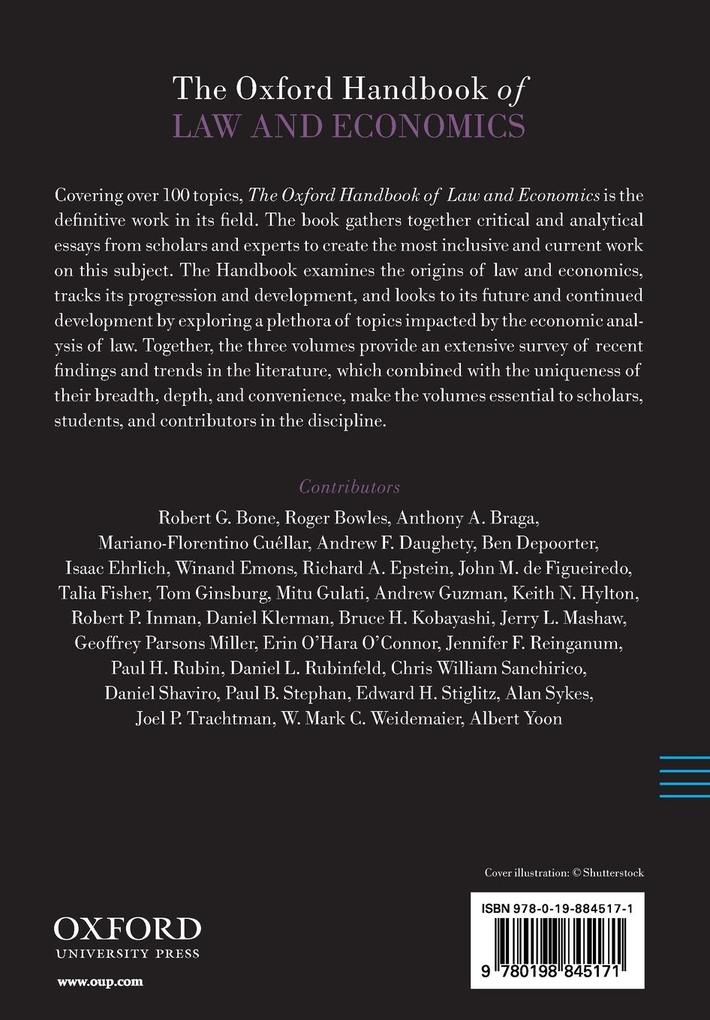
Zustellung: Di, 01.07. - Sa, 05.07.
Versand in 3 Wochen
VersandkostenfreiThe Oxford Handbook of Law and Economics applies the theoretical and empirical methods of economics to the study of law. Volume 3 surveys Public Law and Legal Institutions.
Inhaltsverzeichnis
- Part I: Constitutions, Statutes, and Regulations
- 1: Richard A. Epstein: Optimal Constitutional Structure
- 2: Tom Ginsburg: The Design of Constitutions
- 3: John M. de Figueiredo and Edward H. Stiglitz: Democratic Rulemaking
- 4: Mariano-Florentino Cuellar and Jerry L. Mashaw: Regulatory Decision-Making and Economic Analysis
- 5: Robert P. Inman and Daniel L. Rubinfield: Economics of Federalism
- 6: Daniel Shaviro: Economics of Tax Law
- Part II: Civil Process and Litigation
- 7: Ben Depoorter and Paul H. Rubin: Judge-Made Law and the Common Law Process
- 8: Robert G. Bone: Economics of Civil Procedure
- 9: Chris W. Sanchirico: Law and Economics of Evidence
- 10: Bruce H. Kobayashi: Economics of Litigation
- 11: Andrew F. Daughety and Jennifer F. Reinganum: Settlement and Trial
- 12: Winard Emons: Legal Fees and Lawyers' Compensation
- 13: Albert Yoon: The Legal Profession and the Market for Lawyers
- 14: Talia Fisher: Law and Economics of Alternative Dispute Resolution
- Part III: Crime and Punishment
- 15: Isaac Ehrlich: Economics of Criminal Law
- 16: Keith N. Hylton: Economics of Criminal Procedure
- 17: Anthony A. Braga: Guns and Crime
- 18: Roger Bowles: Prosecutorial Strategies
- Part IV: Beyond National Legal Systems
- 19: Geoffrey Parsons Miller: Economics of Ancient Legal Systems
- 20: Daniel Klerman: Economics of Legal History
- 21: Alan Sykes and Andrew Guzman: Economics of International Law
- 22: Paul B. Stephan: Enforcement of International Law
- 23: W. Mark C. Weidemaier and Mitu Gulati: International Finance and Sovereign Debt
- 24: Joel P. Trachtman: Economics of International Organizations
- 25: Erin O'Hara O'Connor: Choice of Law and Conflict of Laws
Mehr aus dieser Reihe
Produktdetails
Erscheinungsdatum
27. November 2019
Sprache
englisch
Seitenanzahl
592
Reihe
Oxford Handbooks
Herausgegeben von
Francesco Parisi
Verlag/Hersteller
Produktart
kartoniert
Gewicht
1066 g
Größe (L/B/H)
244/170/33 mm
ISBN
9780198845171
Entdecken Sie mehr
Bewertungen
0 Bewertungen
Es wurden noch keine Bewertungen abgegeben. Schreiben Sie die erste Bewertung zu "Oxford Handbook of Law and Economics" und helfen Sie damit anderen bei der Kaufentscheidung.

































